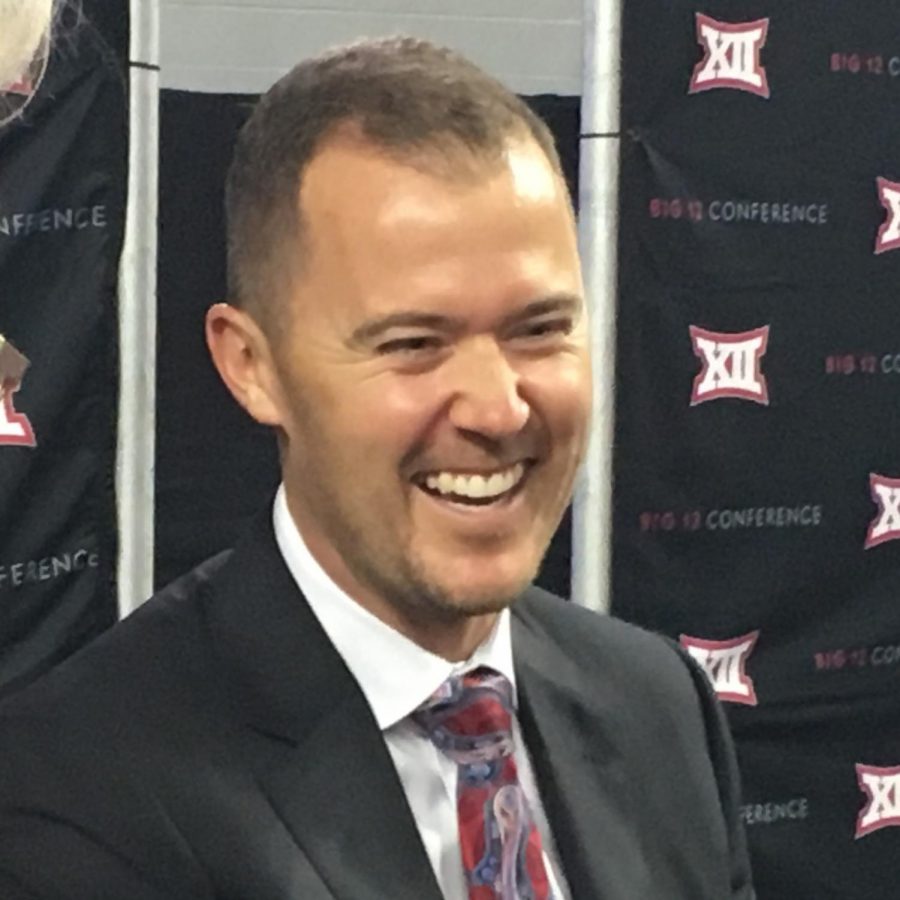College Football In Crisis
Head Coach Exoduses Cast Doubt Across the Power Five Conferences
New USC coach Lincoln Riley is all smiles after USC bought both his Oklahoma houses for half a million over asking.
Lincoln Riley and Brian Kelly both left reliable top five programs for insane contracts in the last week, a landscape-defining shift that could result in a vastly different college football picture in the near future. Riley resigned as head coach for Oklahoma, immediately heading to USC with a contract reportedly worth 110 million dollars. His contract, potentially the largest in college football history, includes a home in Normandy, unlimited private jet use, and a new six-million-dollar house in Los Angeles. Kelly agreed to a 95-million-dollar contract with a number of incentives and performance bonuses, including an additional 500 thousand if he wins a National Championship. These controversial decisions will drastically change college football in the next few years, threaten heavyweight programs’ security, and destabilize the college experience for recruits.
Coaching stability is the foundation for long term success in college football, as we’ve seen with Nick Saban at Alabama. However, both Oklahoma and Notre Dame have been able to compete for a national championship, as well; all three programs remaining competitive largely due to coaching stability. Kelly was at Notre Dame for twelve years, and while Riley replaced Bob Stoops in 2017, he was able to quickly pick up where Stoops left off as the outgoing offensive coordinator. These programs, as well as numerous other Power Five programs, continually rely on recruiting, coaching, and staff personality to compete. This is disintegrating due to Name Image Likeness (NIL) licensing and problematic coaching changes.
These switches from Riley and Kelly have paved the path for “highest bidder” programs, especially with the television deals for the Big 10, Big 12, SEC, and Norte Dame all scheduled to end by 2025.
Inflation of these programs value will inevitably lead to immense contracts, of which much of the money is being preemptively spent to remain competitive. Much like an employee spending money with a paycheck due the next morning, programs have already begun to spend money currently out of pocket. This is quickly mirroring the landscape of European soccer, with the integrity of storied programs and institutions potentially compromised.
Recruiting is already the most crucial aspect in any successful program. Yet NIL deals and the out-of-control spending on championship hopefuls, recruiting may soon become irrelevant, with bidders paying top-recruits indirectly. Past monetary issues with colleges like Ole Miss and UCF will soon be yearly occurrences, publicly supported by even the colleges themselves.
While one could argue that the NIL agreements already opened the floodgates of purchasing recruits, the new uncertainty surrounding coaching longevity opens the way for even more dramatic transfer exoduses and de facto purchasing of national championships by way of coaches.
Coaching shifts from Kelly and Riley will negatively impact NCAA football in the following years. This could even fall down to the high school level, with NIL agreements potentially allowing for a flood of money into top programs at the state level. We should mandate a necessary one-year transfer rule for any resigned coach that would effectively shut down many of the uncertainty for recruits, while maintaining the competitive aspect of the sport.




